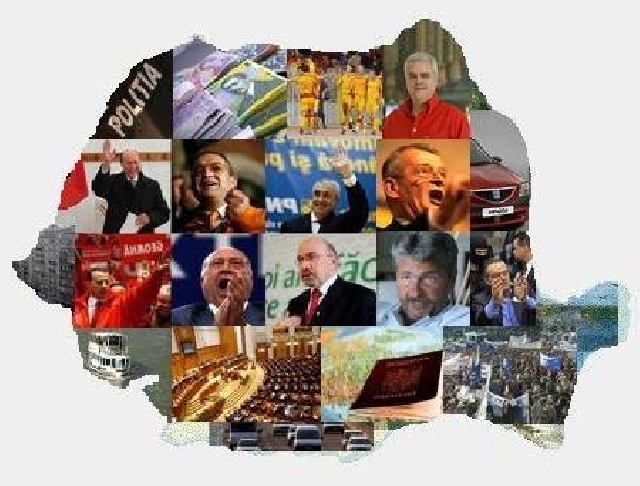The Week in Review 10-16 November
Click here for a roundup of the week's main stories

Mihai Pelin, 15.11.2014, 14:28
The second round of the presidential elections in Romania is held on Sunday
Prime Minister Victor Ponta, running for president on behalf of an alliance comprising the Social Democratic Party, the National Union for the Progress of Romania and the Conservative Party and Klaus Iohannis, the mayor of the city of Sibiu, a candidate of the Christian Liberal Alliance made up of the National Liberal Party and the Liberal Democratic Party, will compete in second round of the presidential elections in Romania due on November 16th. In the first round of the presidential elections Victor Ponta won 40.44% of the votes and Klaus Iohannis 30.37%. Authorities have taken measures so that voting at polling stations abroad should unfold smoothly. In the first round of voting, on November 2nd, Romanian citizens eager to exercise their civic right to vote waited in line for hours and, in the case of many thousands, did not even manage to vote at all. For this reason, foreign minister Titus Corlatean resigned, his place being taken by the former Foreign Intelligence Service chief, Teodor Melescanu. In order to ease voting abroad, the Ministry of Foreign Affairs has decided that all 294 polling stations outside the country will have 7 polling booths and 7 stamps each, the maximum number allowed under the law. All necessary materials, among which 800,000 ballot papers, have already been supplied.
The European Parliament ratifies EU – Moldova’s Association Agreement
The European Parliament ratified, in Brussels, the EU-Moldova Association agreement, which includes a Deep and Comprehensive Free Trade Agreement (DCFTA). EU deputies see this as a clear acknowledgment of the success of Moldova’s political and economic reform process. The Romanian Foreign Ministry hailed the decision and pointed put that Romania would continue to support, both financially and technically, the Agreement’s implementation by the Chisinau authorities, in order to reach the strategic goal of Moldova’s EU accession as soon as possible. We remind you that Romania was the first EU country to ratify this agreement, which will enter into force after the parliaments of all 28 EU state approve it.
Social-Democrat Ioan Mircea Pascu is elected vice-president of the European Parliament
Social Democrat MEP Ioan Mircea Pascu this week was elected vice-president of the European Parliament by majority vote. Vice-president of the Committee for Foreign Affairs, Ioan Mircea Pascu applied for this position after this seat was vacated by Romanian MEP Corina Cretu, who took over as European Commissioner for Regional Policy as part of the European executive led by Jean-Claude Juncker.
The European Commission will help farmers affected by the Russian food export ban
Agriculture Ministers of 21 EU Member States, including Romania, have called on the European Commission to earmark additional funds to help farmers affected by the Russian food embargo, as well as in the event of any other emerging crises. Member States insist that the Commission compensate farmers by disbursing 450 million euros from the Common Agricultural Policy. The Commission however wants to use the money to cover certain deficits and to allot 432 million euros to farmers from a “specific crisis reserve”. The Commission has already announced it would compensate loss-incurring vegetable growers and dairy producers in the value of some 344 million euros. A decision in that respect will be taken next week, as part of negotiations for the EU budget in 2015.
Romania’s economy grew by 1.9% in the third quarter of the year
Romania’s GDP grew by 1.9% in the third quarter of the year compared to the second quarter and by 3.3% compared to the same period last year, according to the latest figures made public by the National Institute for Statistics. In October, the International Monetary Fund revised its GDP growth forecast for this year up to 2.4%. The authorities in Bucharest are expecting a 2.8% economic growth rate in 2014 after a 3.5% growth rate in 2013, one of the highest in Europe. Also, Romania’s 2.4% industrial output growth in September compared to the previous month is the fifth highest in the European Union. According to the National Institute for Statistics, industrial output across the Union was 0.6% higher during this period, with the highest increases being reported by Croatia, the Czech Republic, Ireland, Hungary and Romania.





























